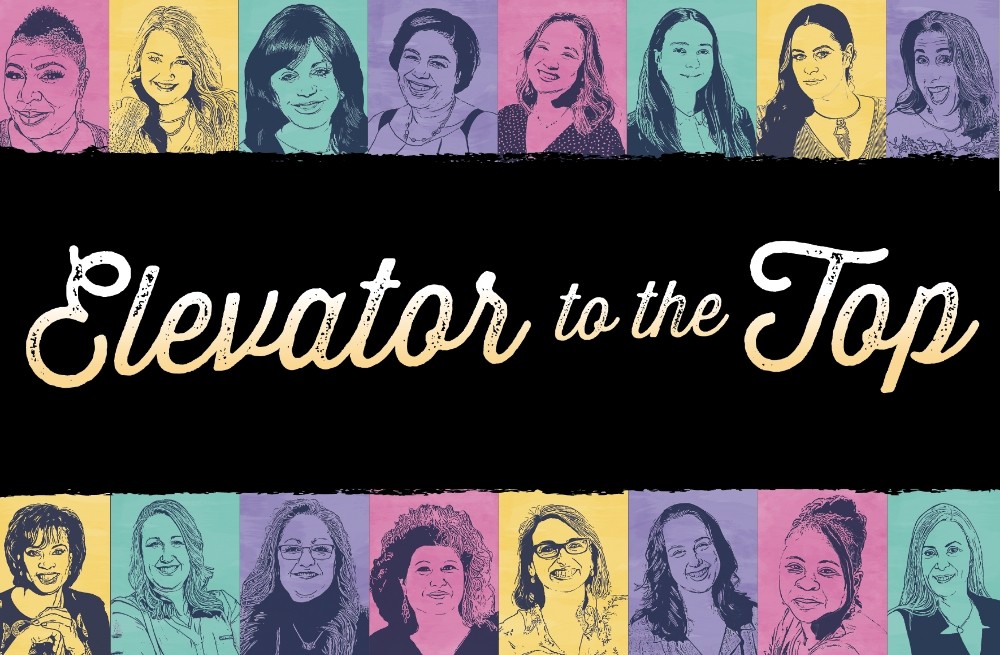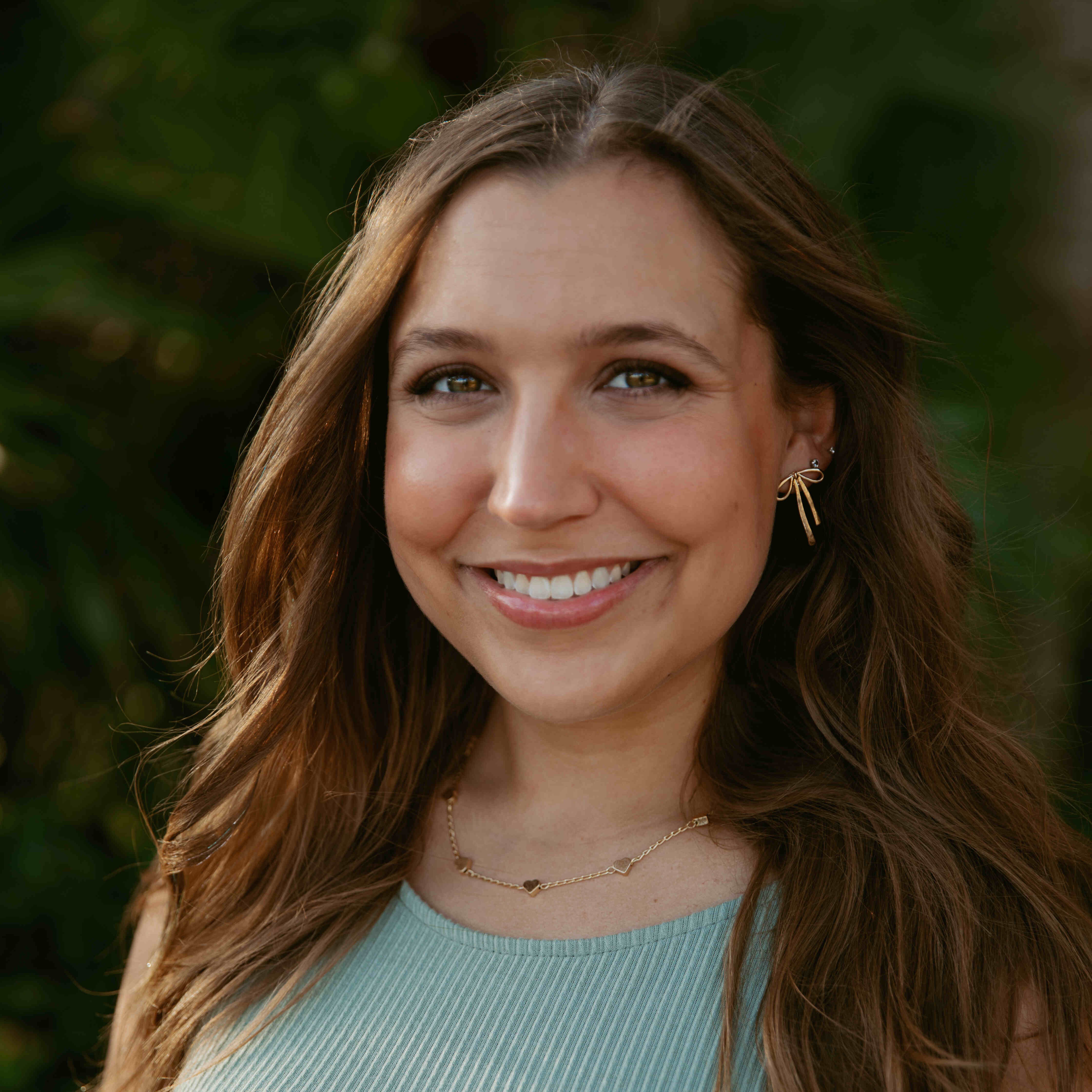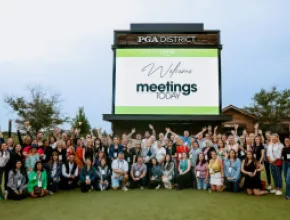Every morning throughout the U.S., approximately 600,000 people wake up to get ready for another day working in the meetings and events industry—either directly or tangentially—with 132,000 of them being meeting and event planners, according to the U.S. Bureau of Labor Statistics.
If the entire meetings and events industry could squeeze into one elevator—and in particular, planners of meetings and events—the majority would likely be women. But as that elevator makes its way up, dropping people off at every floor based on the hierarchy of titles and positions they hold, the vast majority of women would exit before they reach the C-suite.
Men hold 80% of the industry’s C-level positions such as CEO and chairs of boards, according to a recent survey by PCMA Foundation and Business Events Sydney.
Tess Vismale, founder and CEO of iSocialExecution, said things have been this way for decades.
“We do the work and they get to lead,” Vismale said. “We’re in one of the most stressed professions in the world. Why is it that we’re the highest stressed and have the most women? Those things should never go together, and the reason why we’re highly stressed in this industry is because we’re not leading it.”
Yet, for decades, women have been the engine that powers the meetings and events industry, and their efforts and leadership continue to propel the industry forward as they work toward an equitable future. It’s the work they do “behind the scenes” that makes the meetings and events world go around, but the biggest rewards are typically bestowed on those who are still on the elevator as it reaches the highest floor.
And if you’re a women in the meetings industry who does reach that elusive top floor, what then?
“If you get to the top,” said Sonya Bradley, chief of diversity, equity and inclusion (DEI) and community relations officer at Visit Sacramento, “send the elevator back down to bring another woman up.”

Behind the Scenes
“Tell me your meetings and events industry story.”
My interviews with 16 women across four generations all started with those eight words.
Despite how different each woman’s story was from the others that were told, every one of them came to the same conclusion: It’s the women working behind the scenes that make meetings and events possible, and they’ve worked humbly in the shadows for generations.
It’s about time these women get the chance to step out into the light.
[Related Webinar: Special Panel: Women’s Leadership Through the Generations]
How Baby Boomers Broke Through
Shortly after graduating college, Charlotte St. Martin, former president of The Broadway League (as of February 16), found herself working with Fairmont Hotels and Resorts. It was the 1960s, The Fairmont Dallas Hotel was under construction and St. Martin had stumbled upon her role at the hotel without intention.
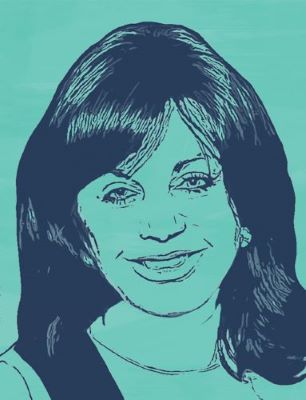
“I didn’t mean to be in the hotel business. I was just trying to figure out what to do with my life,” said St. Martin, who falls into the Baby Boomer generation. “I just fell in love with the hotel business. I went to work 60 to 70 hours a week to begin and I loved every minute of it.”
For seven years, St. Martin worked her way up the ranks with Fairmont Hotels and Resorts before she was approached by the owner of a new hotel that was under development. The project would later open as the Loews Anatole Hotel.
“I was the first and last employee of the Loews Anatole,” said St. Martin, who started at the property as the director of sales and marketing. “I left as the president and CEO when the hotel was sold and went out to New York with Loews to be executive vice president of operations.”
St. Martin spent 28 years with Loews Hotels, eventually holding a position rare for women to achieve. Her journey breaking through glass ceilings continued from there, and in 2006 she was hired as president of The Broadway League, where she continues to run the trade association representing commercial theater in the U.S. and globally.
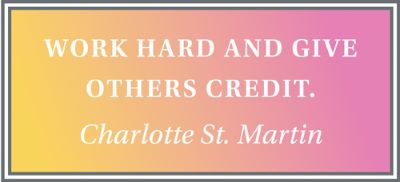
“Certainly, for me, I was the first woman to do so many things that I felt the weight of the world on my shoulders,” St. Martin said. “If I failed, it could impact other women’s opportunity to move up because there weren’t women in key positions. So, I worked really hard to make sure that every job I took, every position I took, I was prepared for it.”
St. Martin’s career in meetings and events has made her one of the highest-ranking women in the hospitality industry. Having served as chair of the New York Society of Association Executives and chair of the MPI, PCMA and ASAE foundations, St. Martin became one of the first women to show others that accomplishments such as her own are possible for women, and she hopes to see more take on roles like hers.
“I still don’t see many breaking the glass ceiling in the corporate offices as chief financial officer, chief executive officer, but I think many are getting lined up to do that,” St. Martin said. “I hope that’s what’s happening.”
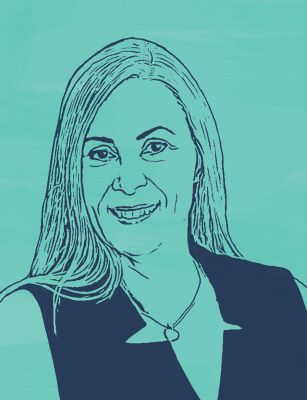
One such example of a woman breaking the glass ceiling is Laura Purdy, general manager of Toronto’s Exhibition Place, Canada’s largest convention and exhibition complex.
At the beginning of what has since become 25 years at the complex, Purdy experienced waves of imposter syndrome. Not only did she not have a background specific to meetings and events, she was also a woman.
“I’m used to being the only woman at a boardroom table,” Purdy said. “As I worked my way up in my career, there were very few women at the boardroom table, and instead of being intimidated by that, I accepted that as how it was and focused on my own skills, focused on working as a team with those around me, be it men or women.
“I think, for women, what’s really important as a woman leader is that we sponsor other women and we take the time to invest our skills and our time and effort into celebrating the successes of other women,” Purdy continued. “I didn’t have too many female role models coming up in my career. There are more women—albeit, not that many—but more women in leadership roles now, and we owe it to other women to give them our support and give them a voice at the table, an opportunity to share their thoughts and experiences and give them that space. I think that is one of the best things we can do as women leaders for the next generation.”
[Related: Broadway League President Charlotte St. Martin Explains Why Women Are Ideal Hospitality Leaders]
Jaki Baskow, founder and CEO of Baskow Talent and Las Vegas Speakers Bureau, has a similar take on the future of meetings and events, believing that in order to reach an equitable future in the industry, those with experience at the top have to be willing to mentor new faces just getting started.
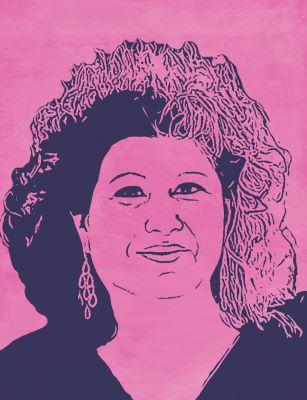
“I really believe that the young people today can benefit from that guidance,” Baskow said. “I love mentoring young people, and there’s nothing like meeting somebody, having a handshake, taking a client to lunch and getting to know a little bit about that person and their business.”
Baskow, another Baby Boomer, moved to Las Vegas in 1976 to work in a movie studio. When the project she was a part of lost funding, she set out to start her own talent agency, and 45 years later, Baskow Talent has created opportunities for Baskow to work with names including Frank Sinatra, Tom Selleck and Kevin Costner.
“I just celebrated 45 years in business. I’m still at it 24/7, and I love it,” Baskow said. “I wake up every day trying to figure out how I can make a magical, memorable experience for people hosting events.”
While Baskow continues to focus her efforts on creating unforgettable experiences for her clients, she also makes herself available to anyone looking to learn more about the industry, especially when it comes to taking your passion and running with an idea.
“My phone is open for anybody that ever wants to call and ask me a question,” Baskow said. “And my advice is always to embrace your job. You have to be passionate. If you’re not passionate about what you do every day, then go do something else.
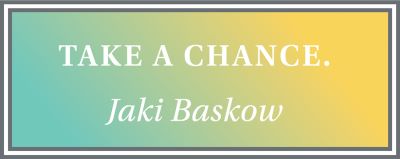
“As a woman, you have to have confidence in yourself,” Baskow continued. “You have to be persistent. Don’t just make one phone call or one email and expect people to call you back. You have to go after what you want in life. You have to make people believe in you.”
Since the start of her career in tourism and hospitality, Visit Sacramento’s Sonya Bradley has been doing exactly that. The chief of DEI and community relations officer at the CVB sits right at the cutoff of Baby Boomers and Gen X, and like many others, wasn’t aware of the meetings and events industry until she became a part of it.
Throughout her career, Bradley said, it was as though one thing always led to another, and she counts her “lucky stars” to have come across people who believed in her along the way, including many men who helped her move up into other positions with a higher pay.
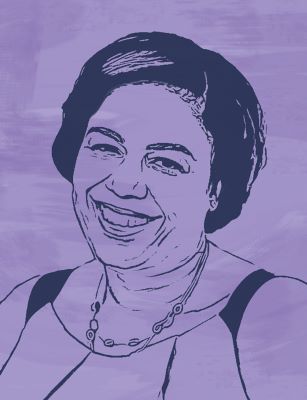
“I figured if they believed in me, that it was time for me to start to step up,” Bradley said.
Early in her career, when her boss at the San Francisco CVB took on a role at the San Jose CVB, she asked Bradley to make the move with her. It was there that Bradley saw what it looks like to have women in leadership roles.
“At the San Jose CVB, we had one of the very few—if not the only, at the time—woman CEOs,” Bradley said. “Marian Holt McLain had risen to the top and she was my CEO. I don’t know if I fully appreciated it at the time, but as I got through my career and got to know more in the industry, if I saw a woman at the top, I took note of it…Early on, I cannot think of another female, not only CEO, but really in the C-suite at all. It really was, and still is, male dominated at the top.”
Holt McLain became the first woman president and CEO in the nation of a major market CVB in 1989. Three decades later, Bradley is a woman in charge, too.
“It comes down to leadership, and I think women are natural leaders,” Bradley said. “Sometimes, it looks like that gets pushed aside as a soft skill early on, and now we’re proving that it turns out having those leadership skills is vital to running an organization.”
[Related: Industry Vet Launches International Hospitality Women’s Day]
The Gen X Experience
If there’s one woman who knows what kind of leadership skills it takes to run an organization, it’s Tammy Blount-Canavan, president and CEO of Visit Seattle. The Gen Xer became the CVB’s first female CEO on May 9, 2022, following three decades of working her way up the ranks of the meetings and events industry with the goal of proving that women can—and should—be leaders, too.
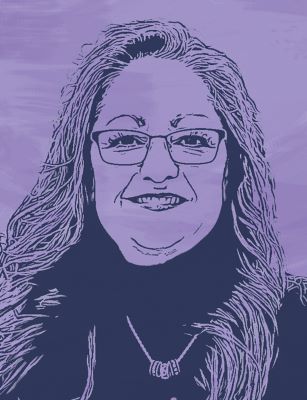
When Blount-Canavan first started working in the industry, she said, “gender equality was not even part of the conversation.” It was all men in leadership positions despite being a female-dominated industry.
Destinations International (DI) was at that time called The International Association of Convention and Visitors Bureaus (IACVB). In the ’90s, Bobbie Patterson was the CEO of the Boise, Idaho, CVB and became the very first female chairperson of DI. Blount-Canavan became the fifth female chair in 2017.
“It has progressed rapidly, but I remember, at that point, [Patterson] and Bonnie Carlson—the second woman chair of Destinations International—were, I would say, fiery women that got token positions,” Blount-Canavan said. “As I talked to those women about what the boardrooms were like at that time, they were—and not universally...I don't want to paint all men badly, that's really important that this is not how that comes across—but they were patronizing. It was sort of like, ‘Oh, little girl, you get to do this. And here's what we're going to do and how it's going to be.’
“Those women pushed back and were not accepting that,” she continued. “They really were huge trailblazers. They were CEOs of small DMOs. There were no large DMOs that were captained by women at that time. It didn't feel exclusionary, it was just normal for that time, right? Late ’80s, early ’90s, that was still kind of normal, although not something that we tolerated a whole lot.”
It was in the early 2000s when Blount-Canavan founded Smart Women Who Get Shit Done (SWWGSD), which started as a group of women supporting one another and talking about how to progress gender equality together. That once-quiet club only became louder and louder, and as it grew, so did the amount of attention it received.
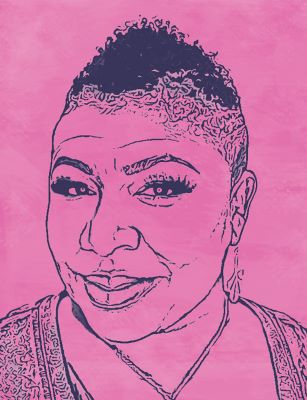
“[SWWGSD] got a lot of invitations to talk about women in leadership more often,” Blount-Canavan said. “When I came off the stage in 2017 from my incoming chairperson speech at DI, a couple of young women came up to me and talked to me about how important it was to see me on a stage. Up until then, I hadn't really given enough weight to what it meant. That thought of, ‘I need to see people that look like me to inspire me to have the courage to do that.’ I just had not taken it seriously enough until then…I feel honored that is a position I get to be in and to connect women to women, uplift women and celebrate women. That's been an honor and a privilege. But it is a giant village of people like me.”
Now, as one of the 20% of women in the meetings and events industry holding a C-suite position, Blount-Canavan hopes that women continue to infiltrate all levels of the industry and leadership with the result being that one day we stop talking about the changes that need to be made because they’re simply no longer a thing.
Tess Vismale, founder and CEO of iSocialExecution, has a similar outlook on where the industry’s been and where it’s going in relation to inclusivity. With experience in meetings and events going back to when Vismale was a teenager, she’s seen the industry shift and change in many ways.
For Vismale, though, the journey she found herself on was oftentimes one she made on her own.
“I was always the only one in whatever I did, unless it was an all-Black environment, and that was very disheartening,” Vismale said. “In the production world, it’s been nothing but men for a long time…Anytime I had to work with them or their teams, it was very difficult, very different, very challenging. You felt every bit of, ‘You’re not supposed to be here,’ and it was clearly a women thing.”
[Related Podcast: She Means Business: Representation, Burnout and Self-Empowerment]
While studying at the University of Georgia, where she got her certificate in conference and meeting management, one meetings and events industry expert who came in to teach a class “took a liking” to Vismale because of her personality and passion for what she was studying. Vismale found another mentor in her, and through the relationship she formed, saw what she was capable of.
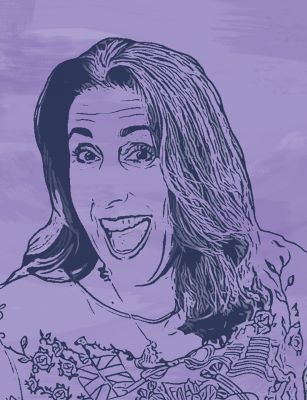
“It was because of her and others in my MPI chapter, because of those relationships that I forged early on in my career, that I was able to really see that things were possible,” Vismale said. “I’m a woman. They’re all women, and we’re all doing the work…I think my challenges were more around being a woman of color and not necessarily receiving certain opportunities because of it. But because of those relationships, I did. They are the ones who opened the doors for me. The relationships women have are very, very different than those we have with our male counterparts.”
Jaclyn Bernstein, president and owner of Empire Force Events, the longest-tenured independent and locally owned destination management company (DMC) in New York City, believes that at the center of workplace relationships—whether they be with men or women—is respect.
Growing up, Bernstein was a “welfare food stamps girl from Brooklyn.” As an only child to a single mother, she learned early in life what it meant to work hard and be respected for it—and what it meant to be loyal. Her first job out of college was with a DMC based in New York City—the same DMC she is now the owner of-—and for nearly 30 years, she’s been running her company on one core value.
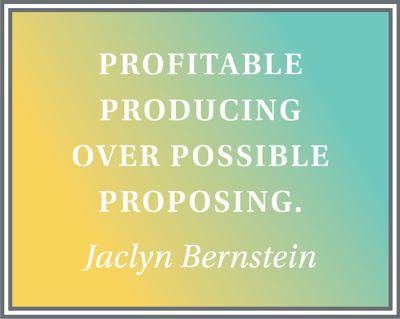
“Respect, I believe, is the most important thing in business: being respected and loved for what you do,” Bernstein said. “I don’t really feel there was anything about gender equality or equal opportunity that was really being talked about at the time. Sometimes you would hear people say they’re concerned about hiring the young girl because she may end up getting pregnant, not being able to work the late hours or do what she needs to do, so they’d look for someone else.
“So, here I am. I buy the company, and what did I decide to do? I decided to hire young girls in my image because I want to mold them to be just like me,” Bernstein added. “That was the motherly instinct in me…All my employees, all the girls, they all felt like they were my sisters as opposed to employer-employee relationships. I just never lived that way.
“I realized, when it’s just the girls, there’s a lot you learn from, and you support each other,” Bernstein said. “When I decided to own this company, if I felt beaten down and questioned what I could do, it was always the women that were there to say, ‘You can do this. You’re a strong woman.’…Feeling that camaraderie is important in our industry to get us where we want to go.”
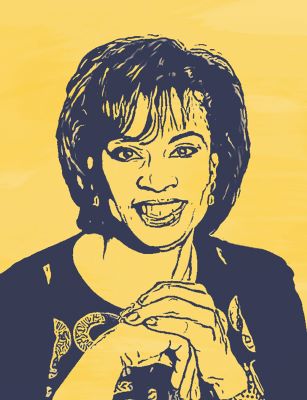
Twyler Jenkins, president and chief strategist at Strategic Event Solutions and another member of Gen X, founded the I Am That Woman Movement (IATW) as a direct result of what she learned was possible through that type of camaraderie within female friendships.
“When I turned 43, I invited 43 women to a private dinner. Friends, family members, girlfriends and mentors,” Jenkins said. “I tried to create a mix. I wanted to make the audience cross-generational. The purpose of this was for us 43-ish-year-olds to talk to the seasoned, more mature women about life.”
Jenkins and her life coach moderated a conversation about careers, health, spirituality and relationships that led to one of her mentors encouraging Jenkins to take what she had created to another level. The seed was planted, and Jenkins launched the IATW retreat in 2018.
“There’s a certain power that happens when you get women in the room and they talk to each other,” Jenkins said. “We’re planners. We don’t always have time to tune into the program. This time, I got to play in it and be a part of the experience, and I witnessed that power. We laughed and we cried and we shared—and it was amazing.”

Those experiences and the relationships they can form between women can help others face personal obstacles as well, such as building up their confidence.
Deidre Young, training specialist and meeting manager for the Administrative Office of the United States Courts Defender Services Office, sees women putting pressure on themselves to be perfect across the industry. But sometimes, it seems no matter how much pressure they put on themselves to reach for bigger and better things, there’s still something standing in their way.
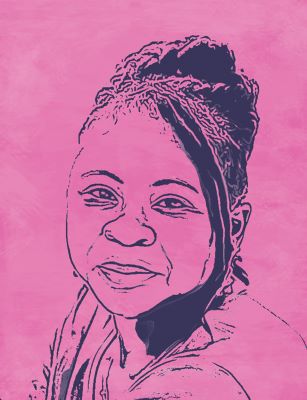
“We very much have hit the glass ceiling,” Young said. “Eighty percent of meeting planners are women, but when you look at the executive levels, it’s hard to transition from being a meeting planner to being the head of an organization for females. When men are in that position, they get to be the director, the vice president, executive vice president, CEO, way sooner.
“When a job opening comes around, women are very much the ones that say, ‘Out of the 10 things, if we can’t do one of them, we won’t apply,’” Young continued. “Men, on the other hand, think, ‘Oh, I can only do three of these things, but I’m still applying,’ and they get picked. And they don’t do those three things well either.”
Despite how they perform, Young said, she often finds herself and female colleagues in “mansplaining” situations, which occur when someone, typically a man, explains something to a woman in a condescending, patronizing and often inaccurate and oversimplified manner.
“Those situations, for me, are very difficult,” Young said. “As a Black female, I really have to be careful because I cannot afford to come across as the angry Black woman…If you speak up, it seems like you’re not willing to be a team player, and I think that’s one of the things that women get caught up in. The things that men do, if we do them, it’s another issue. They call it something different. They don’t think we have the strength to do stuff, but when we do, and we act how men act, it’s wrong.
“We break the glass ceiling, but there are always jagged edges,” Young added. “So, you’re bleeding as you still go through.”
[Related: Women Making a Difference in the Meetings Industry]

Millennials in Meetings and Events
Liz Smith was a junior at Vanguard University of Southern California majoring in pre-law and business when her friend encouraged her to apply for a job at the local Four Seasons.
At the time, Smith, now vice president of sales and marketing and a founding partner of Eight One Events, was preparing to spend four months studying abroad in Europe. Focused on graduating college and getting into law school, a job at the Four Seasons didn’t necessarily align with her goals.
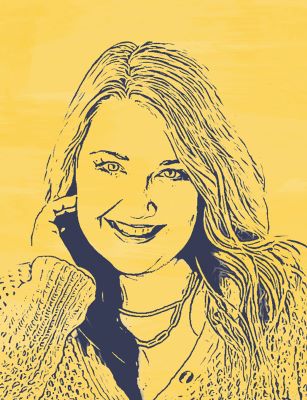
When Smith returned from studying abroad, she interviewed at the Four Seasons and was hired as a sales assistant, working with the hotel’s director of sales and marketing. It was there that her career in hospitality officially started.
When the Four Seasons started a transition, Smith’s boss suggested she should look into a career in destination management. Determined to “work for who’s the best,” Smith found herself looking into roles with Patti Roscoe & Associates (PRA), a DMC founded by Roscoe in 1981.
“I loved the fact that she was a woman that had started this business and had really made it her own and made a reputation for herself at the time,” Smith said. “When I started in the industry, the top was definitely male dominated, but there were still a lot of amazing powerhouse women, which I think is probably one of the reasons that this industry was inspiring to me, because I was like, 'OK, I want to be one of those powerhouse women. I want to be taken seriously in this industry. I want to own my own company.’
“It didn't ever seem like something that I could do,” Smith continued. “But then, I had amazing mentors that helped me, gave me the guidance and the strength to think that I could do it on my own because they had done it before me.
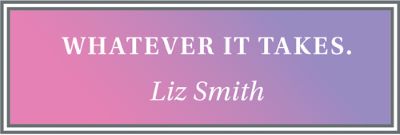
“I think we’re doing a much better job of having [female ] representation on a higher level, but when you get to the upper echelon of the meetings world, it’s still pretty male dominated. It just is,” she added. “But there’s some room at the table for some strong, powerful women to get in, and I think that, for future women in the industry, it’s just having the tenacity to keep going.”
Encouraging women in the industry to keep going is what Courtney Stanley is all about.
Stanley, a keynote speaker, host of Meetings Today’s Dare to Interrupt podcast and CEO of Courtney Stanley Consulting, launched her full-time entrepreneurial venture at the end of 2019 as a motivational speaker, podcaster and business coach. Four years later, her business has taken off, and so has her passion and investment in supporting the industry—especially from a female standpoint.
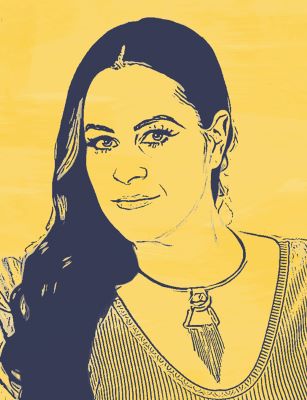
Alongside Sarah Soliman, president and CEO of Soliman Productions, Stanley co-founded and led the #MeetingsToo movement, a multifaceted effort to prevent sexual misconduct from taking place at meetings and events. Together, Stanley and Soliman created content and offered resources to empower the meetings community to plan events that offer a safe space for all attendees.
In 2020, “on a mission to share the stories and wisdom of women in the events industry—unfiltered and uninterrupted,” Stanley created and launched the Dare to Interrupt podcast in partnership with Meetings Today, giving event professionals the chance to overhear “raw, unfiltered conversations between the industry’s most influential and inspiring women.” And in 2022, Stanley founded and launched the Women to Watch Awards in an effort to elevate and celebrate women in the event industry on International Women’s Day.
“From my perspective, I don’t recall as many women being in leadership positions when I first entered the workforce in 2011. We also weren’t having nearly as many conversations about how to elevate women, and there were not as many groups and communities dedicated to the advancement of women,” Stanley said. “Women are a whole lot louder now, and I mean that in the best way. We’re initiating dialogue around how to advance and advocate for one another; we’re creating micro communities to better support each other and we’re sharing more content that addresses the challenges we’re working to solve. We’ve amplified our voices.”
[Related: #MeetingsToo: A 10-Step Action Plan to Fight and Address Harassment]
Continuing to amplify female voices is key in showing younger generations what’s possible for them, says Ashley Lawson, vice president of Achieve Incentives & Meetings and another Millennial industry professional.
“It is so important we have women in leadership positions and on stages. If young people can’t easily connect the dots that they too can be in those roles, it won’t feel possible to them,” Lawson said, whose meetings and events industry story is a bit different from the others.
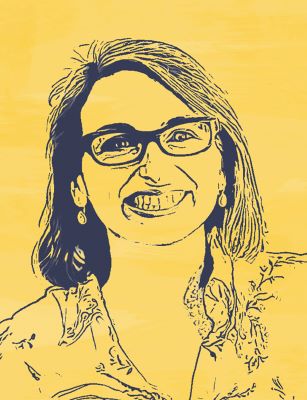
“I was born in the industry,” she said. “I grew up in a family business that planned incentives all around the world, so I understood some parts of the industry.”
But, as she watched her whole family in the business, Lawson said, she “never wanted to be a part of it.”
“I saw how hard they worked, how they never stopped, how grueling it was, the little control they had trying to handle everything, every logistic, as they are moving hundreds and sometimes thousands of people to other countries,” Lawson said. “And I thought, ‘That seems really, really hard.’”
Having been raised by a single mother, Lawson learned to understand how special it was to be surrounded by a supportive community of friends and family. Feeling that type of support inspired her to do the same for others, and with her knowledge of the events industry, she took her skills to the nonprofit world, working at a homeless services agency in Washington, D.C., leading all events and strategic fundraising partnerships.
On her first fam trip, Lawson was full of excitement, ready to meet her new industry peers and tell them all about her career leading corporate social responsibility (CSR) plans for some of the top Fortune Impact 20 companies in the world based in D.C. To her surprise, her welcome to the industry was less than warm.
“My background was in nonprofits, and I would talk about that, and it was clear that it was not respected,” Lawson said. “I was down a lot and felt really bad, and it was all women on that fam. That was one of my most poignant memories of feeling like, ‘Do I belong?’”
Even in an industry full of women like her, Lawson struggled to figure out where she fit in. Ever since that experience, she vowed to make sure that she would always prioritize making anyone she met, in any situation, and ensure they felt welcome and encouraged. It was that experience that taught her how impactful and important it can be to lift others up, and how vital it is to lift yourself up.
Lawson also took a step back to re-evaluate her “why.” Then, she set out to ask others about theirs.
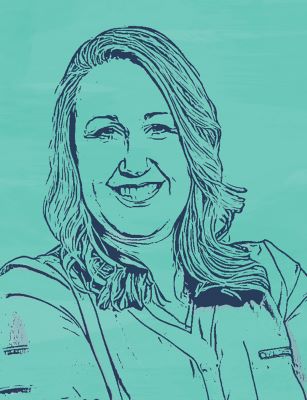
“Always give back to your ‘why’ and your ‘want,’” Lawson said. “Look at your personal mission, let it evolve and see what steps it may take to get there. Don’t rush it, because that time is when you learn …You have to be what you’re curious about, think about the future you want to create, the impact you want to make, and let no one stop you from making it.”
When it came to her career in meetings and events, Carley Crose, program manager at Bishop-McCann and another Millennial, stayed true to her “why” and “want,” following the path she felt most inclined to follow instead of letting others decide which path was right for her.
“If I wouldn’t have taken risks, I wouldn’t have gotten to where I am now,” Crose said. “Give yourself a big window of courage and a small window of rejection. Punch higher than you think you can. Don’t be afraid to be honest about what you’re passionate about and what you’re not. Think like a man when it comes to that kind of stuff.”
Crose said she feels fortunate to be part of an industry that is heavily female by nature. Despite working with clients from industries that tend to be male dominated for most of her career, Crose said she’s never felt at a disadvantage in her position knowing there were thousands of other women in positions just like hers.
Where she didn’t see women like her was when she looked at who was at the top.
“When I started, it was men who owned the companies and the agencies, and it was men that were driving the sales. Basically, the ladies were the doers, and I've seen that shift a lot,” Crose said. “There are a lot more female hotel managers, a lot more female agency owners, more female-owned industries and independent planners going out on their own. There’s been a change in the entrepreneurial spirit and women fighting louder for what we deserve, being able to stand up for it…and I think people are becoming as open-minded as they should have been a long time ago.”
[Listen: Dare to Interrupt, A Meetings Podcast Made by Women, for Women]
Gen Z and Their Hopes for the Industry's Future
While the meetings and events industry has made significant progress in empowering women over time, that doesn’t mean it doesn’t still have a long way to go, and if there’s one generation that’s likely to speak up about what needs to change, it’s Gen Z.
Currently between the ages of 12 and 27, the oldest Gen Zers are just getting started in their careers, entering the workforce with a whole new set of challenges in comparison to those faced by previous generations.
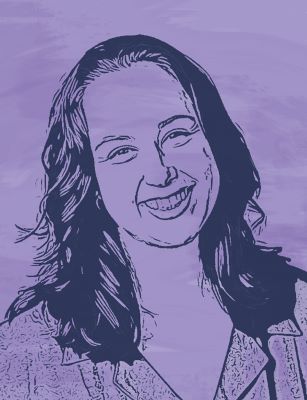
One challenge remains the same, though: How do we continue to lift women up?
“When you’re in a space that’s mostly women, we’ve been trained to believe that opportunities for women are limited and scarce, so you have to fight tooth and nail to get those opportunities, to be respected, to be in the C-suite office in any industry as a woman,” said Caroline Cole, account manager at MAS and member of Gen Z. “So often, women are quick to tear each other down because we see each other as competition as opposed to, ‘Let’s both get up there, elbows out, and make more space for people to join us.’
“Men, they see each other as colleagues, as mentors to each other. They are constantly helping one another because they’re not scared of a lack of space,” Cole continued. “I think, in this industry, it’s very easy for women to hold on tight to the position we’re in, because we’re like, ‘Well, if I lift up another female, what if they take my spot? What if they come above me? What if there’s not room for all of us?’ It’s not a fair way of thinking, and it’s not something men struggle with at all.
“I challenge females to try and get more into that mindset, especially when we’re in such a female-heavy industry,” she added. “There is space for all of us, and it’s important to invest in the women around you so that we can continue to grow with each other as opposed to everyone struggling on their own journey.”
[Related: Women Event Leaders Share Inspiring Messages for International Women's Day]
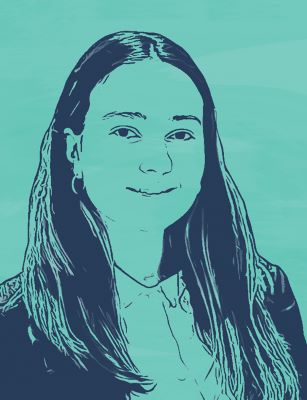
Part of that personal struggle, said Nadzeya Melnik, incentive manager at United Partners and another Gen Zer, is the reality of imposter syndrome, something both younger professionals and women experience more than their male counterparts.
“From my perspective, one of the prominent challenges I believe young women may confront is a sense of shyness and self-doubt,” Melnik said. “Overcoming imposter syndrome and recognizing their own worth is vital. In this industry, your journey will be marked by your willingness to step out of your comfort zone and take on new experiences. Trust in your abilities, and don't hesitate to make your mark.”
Nikki Gonzales, chief of staff at Soundings and another member of Gen Z, also emphasized how challenging it can be to overcome imposter syndrome, as well as how helpful it can be for young women to have someone they look up to reminding them of what they’re capable of.
“Coaching and mentorship can be keys to allowing people—not just women—to have the confidence to take on opportunities that we may not feel 100% ‘qualified’ or ‘ready’ for,” Gonzales said. “This support can significantly help to advance talent forward.”
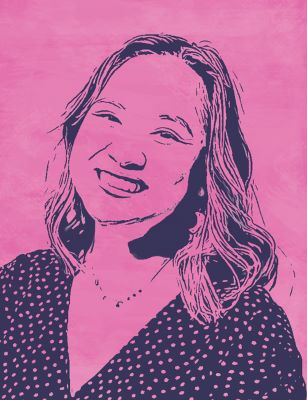
It was that type of support that made Cole, Melnik and Gonzales all feel confident and empowered in their career journeys, like they had a spot at the table and ideas people wanted to hear.
“I can’t stress enough the importance of mentorship,” Cole said. “I think a common issue in our industry is how fast paced it is, so when it comes to mentorship programs, those who do invest in them at the beginning don’t always keep up with them. I place that responsibility on industry veterans to invest the time that you wish someone had invested in you, because it’s really that hands-on learning and mentorship where you’re going to learn the ins and outs of the industry, from career planning to personal branding to networking skills and etiquette.”
“I like to think that I am an example of an empowered employee that has gotten incredible support from my female leaders and mentors throughout my career,” Gonzales said. “My current boss, Tracy Judge, has been an amazing example as a leader…She always reminds me that mentorship goes both ways and that we are constantly learning from one another.
“As a young female professional in the industry, I greatly appreciate being seen as someone whose perspective and experience is valued no matter what level of experience I may have,” Gonzales continued. “The industry has a lot to gain from the perspectives of Gen Z and emerging generations, and this should be taken into consideration as we think about the future… If there’s a mentality I live by, it’s pulling up another chair at the table instead of fighting for the one that’s left. We can grow together by uplifting our peers and providing opportunities for those to follow.”
Read more Diversity & Inclusion content from Meetings Today.



